Unusual Cultural Traditions From Around The World
Ready for a tour around the world – right now? Don’t bother booking a flight – we are going to share some amazing cultural traditions right here.
Our world is full of rich cultures in which people have kept rituals and practices for millennia. Learning about how others live is part of understanding our world, and we’re glad to be able to share these facts with you. So buckle up and read on.
25 and Unmarried? Shame!
Young adults these days tend to stay single longer and longer – perhaps they have professional or educational goals or just want to experience the world before settling down. There’s no “right age” any longer for marriage.
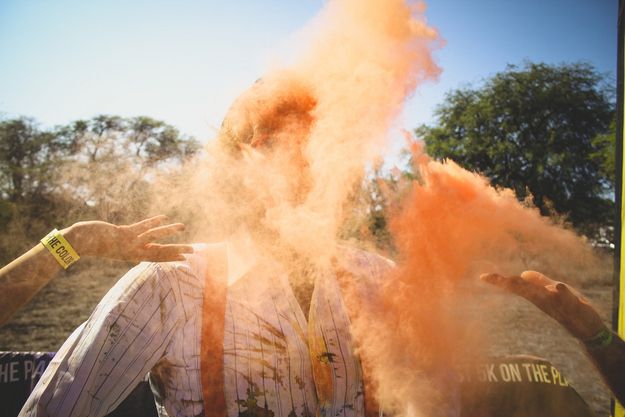
Source: clairekavculturestudiescom.wordpress.com
But if you live in Denmark, there is a suitable age. You’d better be married by the time you reach the age of 25. If you reach that age and are still single, you will be subjected to a rather freaky tradition. Your friends and family will tie you to a post and throw cinnamon on you from head to toe. They then will toss on water or eggs to make the cinnamon stick to you.
The Tub is…Occupied
If you visit a friend in Slovakia before Christmas, be prepared. A brief visit to the restroom may be shocking because you might find a couple of fish in the tub.
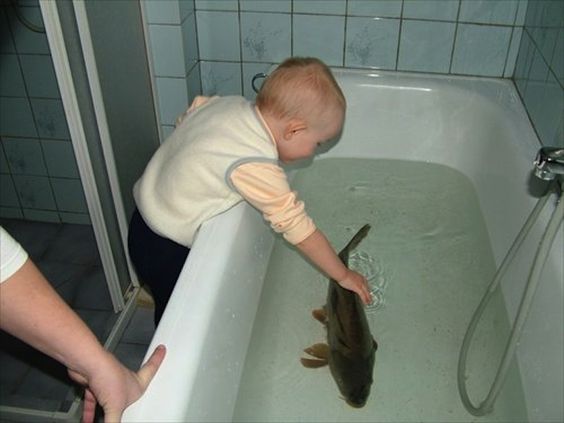
Source: spoonuniversity.com
Holiday food prep in Slovakia starts by placing carp, the favorite holiday fish, in a tub for a few days. This soaking allows time for the fish to be rid of the algae, dirt, and other detritus they may have eaten. Whatever you do, don’t scream, “There’s a fish in your tub!” That may be considered uncool.
These Babies are on Their Own
You’d undoubtedly panic if you noticed a stroller outside a store with a baby inside and no one watching it. Then, you’d run into the store asking, “Whose baby is this!!” Within minutes a police officer would be called about the abandoned child. It may even result in the child being taken away from the negligent parent.
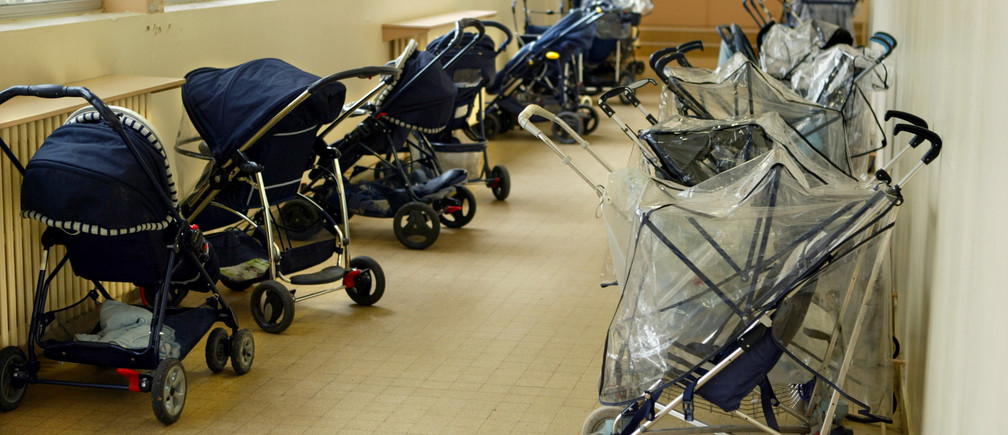
Source: weforum.org
Not so in Norway. There, kidnapping is almost nonexistent, and parents routinely leave their babies in strollers outside, snugly wrapped up, and go about their shopping or grabbing a coffee without worries.
Hello! Let's Kiss Noses!
This is awesome. In the United Arab Emirates (UAE), men greet each other with a nose kiss (well, actually a nose-to-nose rub), sometimes with kisses thrown in for extra measure. Compare this to other countries where men don’t ever get that close, mostly greeting each other by shaking hands.

Source: Pinterest.com
In the UAE, men use this greeting to show pride and mutual respect and sometimes add phrases of praise to God. This is such a warm way to greet one another.
Our Personal Sauna
Wouldn’t you love to have a sauna in your home? Most of us consider having our own sauna a considerable extra, expensive, and quite luxurious. But the idea of sitting in your sauna whenever you want sounds lovely, doesn’t it?
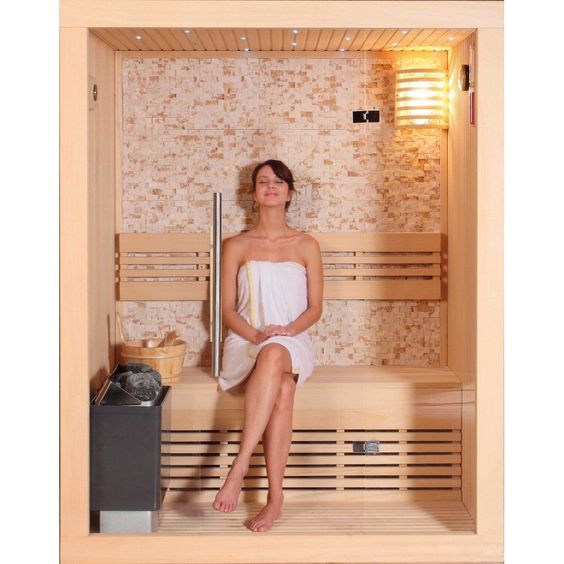
Source: vital-hydrotherapy.com/ Pinterest
Just move to Finland! Many Finns have saunas in their homes, and it’s not just for the health benefits. Finns consider the sauna a special place in which to purify themselves and experience spiritual well-being and peace of mind.
No, Thank You I Mean, Yes, Thank You
When in Ireland, first say no. That is, when offered food in someone’s home, be shy about it and don’t jump at the offer with a “Yeah! Sure!” It would be best if you played around a little.
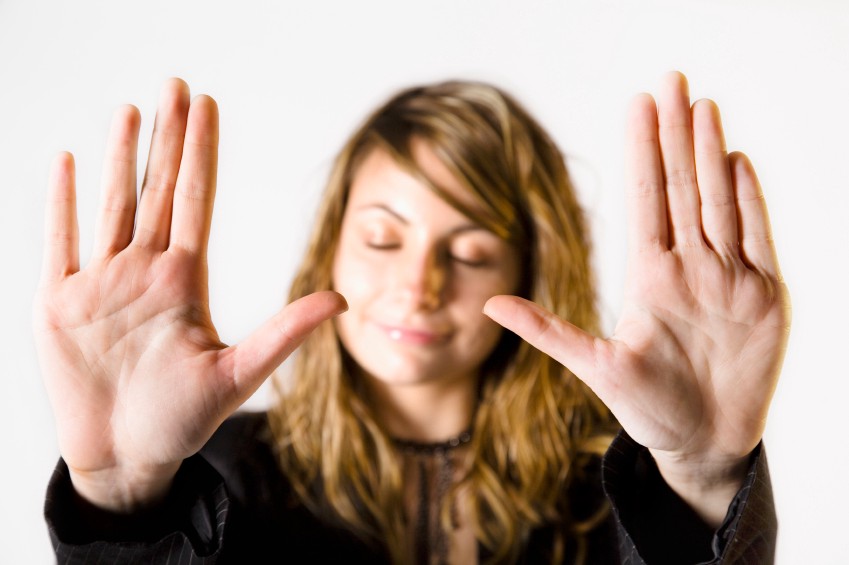
Source: medium.com
Say no a couple of times to indicate that you understand the extra effort they’ve put in to provide the food and show that you appreciate their hospitality. There you go; now you’re ready to say yes and dig in.
Not that Kind of Thong
Aussies wear what many in the world call flip-flops, those flat plastic shoes that keep your big toe busy. These shoes are perfect for Australian weather, which can be hot, humid, and wet. And Aussies call them thongs.
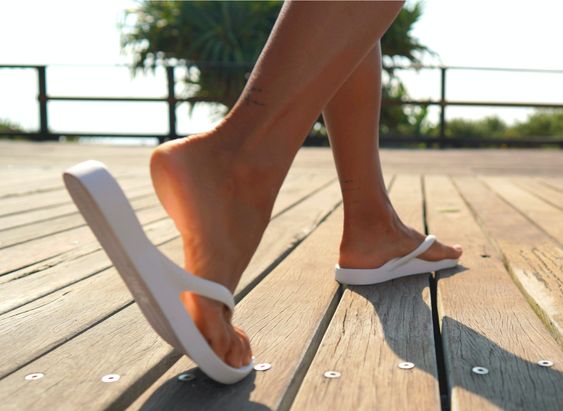
Source: archiesfootwear.com/ Pinterest
But they don’t call them flip-flops, so if you are in Australia, and someone tells you they are going to put on their thongs, don’t panic and cover your eyes. They’re just shoes. By the way, what Americans call thongs are called “G-bangers” in Australia.
Happy Easter Here's a Bucket of Water
Talk about odd cultural traditions – in Slovakia, the Easter tradition is to pour a bucket of water over your woman and then whip her with willow sticks. Sounds a little violent? Not to worry, nowadays those “whips” are love taps, but the tradition still exists. Moreover, it is supposed to be a healthy preparation for the coming of spring.

Source: Facebook
The women are also supposed to thank the men by handing out dyed eggs in exchange for this treatment. Just remember that this tradition is meant to symbolize strength and youthfulness.
Argentina: University Graduates Are Hit with Eggs and Paint
Academic achievements are a great reason to celebrate, wherever you may be in the world. In countries like America, finishing a degree is a major challenge, filled with many financial and intellectual hurdles, but it’s necessary to enter certain fields, contribute to society, and become better citizens.
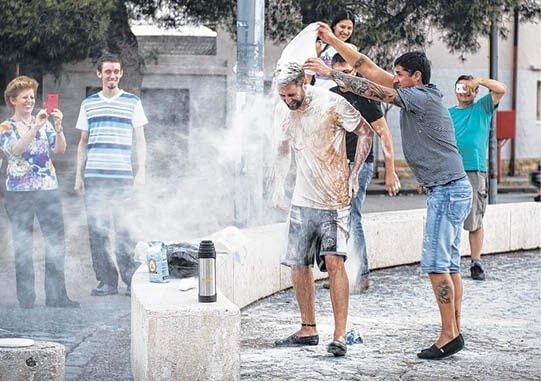
Source: medium.com
In Argentina, a simple celebration won’t do. Graduation plans will earn you a joyful visit from friends and family armed with paint, eggs, oil, and confetti. It’s their messy way of saying congratulations.
Russia: Dual Passports
In Russia, an internal passport makes it easier for authorities to identify people and track down criminals, just as it was historically used for migration control back in the eighteenth century. It contains verifiable data about each person, like proof of demographic data and citizenship.

Source: nikiproshin
Of course, most countries only have an international passport for those who plan to cross borders for travel. Russia’s internal passport is the same size as an international one, and as you can see from the picture above, they look quite similar.
Israel: Streets Are Empty on Yom Kippur
In the 21st century, it is almost inconceivable to find a city with not a single person on the streets. Even at the height of pandemic restrictions, there would always be someone off in the distance, going out for their daily exercise.
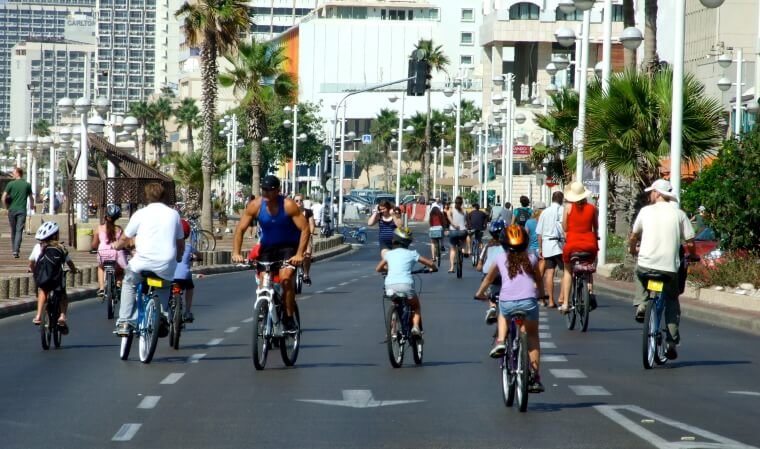
Source: mensmetrohairstyles.com
However, when the Sabbath of all Sabbaths (Yom Kippur) comes around, the streets of Israel go quiet for 25 hours as Jewish people repent for their sins while fasting and praying in synagogues.
Russia: Bears Ride Motorcycles
A real bear hopping on a motorcycle for a ride somewhere in Russia is way up there on the list of the most bizarre things one will ever see. It is strange, cute, and too incredible to take in all at once.

Source: The Irish Sun
What is equally surprising is that it doesn’t pose a danger to anyone. Nor are any of its fellow commuters in the least bit bothered by its presence. To Russians, it’s just a bear casually going for a ride. There’s nothing much to see. However, this concept is shocking to the rest of the world.
Sweden: Personal Information is Easily Searchable
It seems that Swedes have very little to hide from each other and that transparency plays a major role in how they lead their lives. Throughout the world, public officials are generally expected to be open to scrutiny as a deterrent against corruption. However, in Sweden, everyone lives by the same rules.

Source: facebook
Private individuals have no qualms with having information like their addresses, birthplace, and date of birth searchable via Google. It would only take a few clicks to learn about a person’s occupation and even what vehicle they drive.
United States: Ginormous Fast Food Serving Sizes
A 40-ounce cup of soda in America would look like a family-sized pitcher to consumers in other countries. Indeed, they often wonder why there’s no handle for sharing it out. However, in the US, it is common for such a drink to be consumed by only one person.

Source: flickriver.com
America is home to a vast ecosystem of fast-food chains, and citizens love having all kinds of sweetened beverages to go with their burgers and fries. The image above compares the largest drink size in Japan to the largest sizes available in the US.
Brazil: Their Way of Deterring Burglars
Brazil is famous for its street dancing and lively parties. These, along with its many white-sand beaches and unique landscapes make it a hot spot for tourism. However, residents will tell you that the country also has its problems, and a high crime rate is one of them.

Source: Reddit
Glass shards are installed to keep burglars from scaling the walls and entering private property. In a country with a crime rate that ranks in the top three worldwide, such measures are understandable.
Switzerland: They Translate Everything in Multiple Languages
Switzerland owes its four national languages to its history of decentralization, being composed of the country’s 26 cantons, which essentially makes it a federation. The languages are German, Italian, French, and Rhaeto-Romance, and then there are dialects within these. Travelers don’t have to worry since not even every Swiss person can speak all those languages and dialects. Also, English is widely spoken throughout the country.
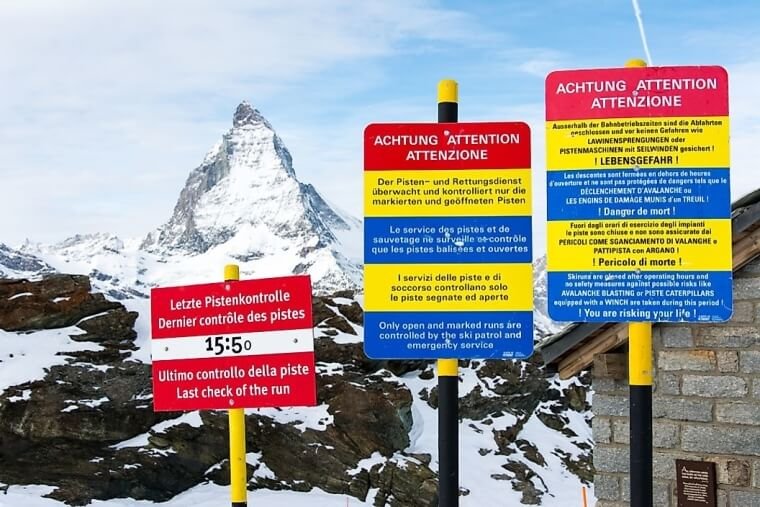
Source: Facebook
Starting a business in Switzerland can be cumbersome in the text translation department. When explaining or preparing printouts for distribution, it is necessary to have translations available in the four national languages.
Iran: Handheld Bidets Are Common
A very small percentage of Americans have bidets in their toilets. It just isn’t a fixture that looks like it will catch on in the US. However, when it comes to handheld bidets (also known as “bum guns” or “private jets”), many countries in Southeast Asia and the Middle East are ahead of the curve.
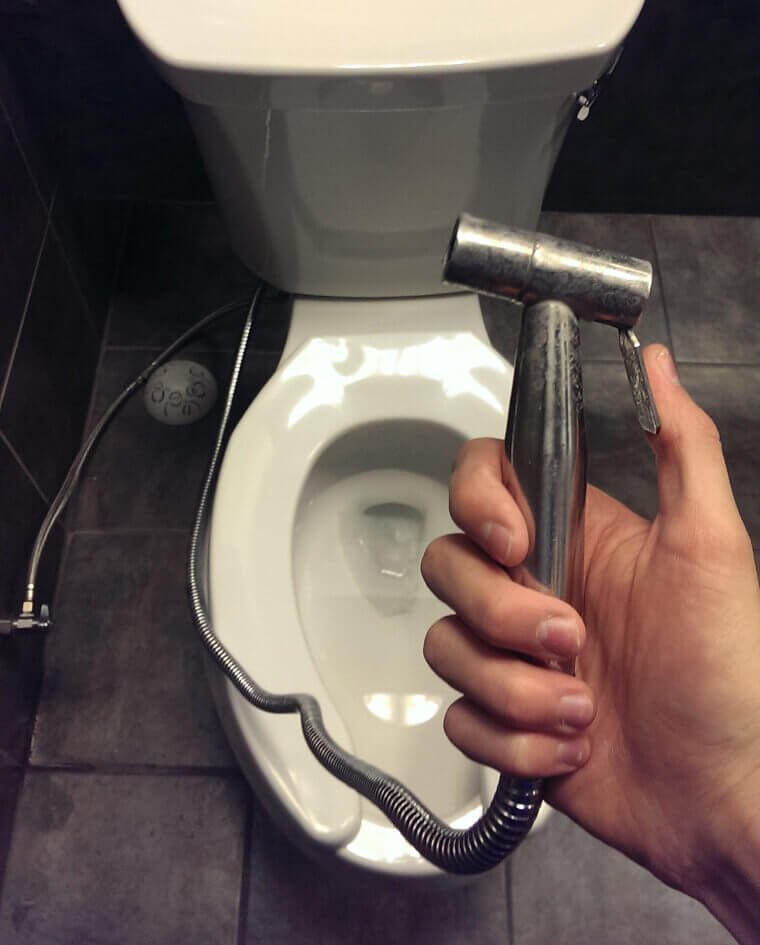
Source: imgur.com
Bidets are environment-friendly, allowing you to do away with toilet paper which is known to cause irritation. This makes it easier for people to get extra clean, prevent the spread of bacteria, and help the environment at the same time.
United States: The Pledge of Allegiance Looks Strange to Outsiders
Students in the United States recite the Pledge of Allegiance every morning in school, mindlessly performing the ritual before the flag. Some mumble the words and many don’t really understand the meaning of what they’re saying.

Source: William Thomas Cain/Getty Images
Some outsiders feel this exercise is an example of bigotry and nativism. They assume it must feel awkward to be forced to pledge allegiance or be expelled from school. Such a concept seems antithetical to the freedom Americans value.
Sweden: They Put Snow to Good Use
Sweden is blanketed in snow during winter. Outside, everything looks practically the same, and many people are forced to stay at home for long periods, watching the trees’ branches bow under the weight of the snow.

Source: francescaloscialp
The Swedes have learned to utilize this natural resource by chilling their beverages outside in winter. This means more refrigerator space is available, but it also means you have to brave the outside world every time you want a drink!
United Kingdom: Uses Two Systems of Measurement
Most countries have chosen to use the metric system because it is more accurate and easier to convert due to its being based on decimals. The imperial system is, by contrast, full of oddities. Instead of completely shifting to be more efficient, the UK has chosen to use both systems of measurement, which can be confusing.

Source: Reddit
If you are a foreigner on vacation in the UK, a converter app is a good idea when shopping as it will allow you to translate from one system to the other with ease.
Philippines: Eating with Bare Hands
A peek inside the kitchen of a typical Filipino household reveals the usual set of plates and utensils, just like any house elsewhere in the world. However, those knives, forks, and spoons aren’t always used.

Source: Pinterest
Filipinos love to eat with their hands, especially when together with friends and family, finding it most comfortable when sharing meals. Many confess the practice is reminiscent of their younger years, evoking a sense of warmth and camaraderie.
Switzerland: Pure Democracy
From the outside looking in, people are in awe at how Switzerland’s pure democracy works. Its citizens have a direct say on policy formulation, and they are allowed to vote on issues large and small, suggesting changes from the municipal level and up.

Source: Wikimedia Commons
This is unlike almost all other democratic governments in the world that conduct their business through elected representatives, who in turn vote on behalf of their constituents. Pure democracies are difficult to implement with larger populations. Among other challenges, people have to vote far more often and must be more informed.
Asia: Masks Were Common Pre-Pandemic
Since the start of the pandemic, people around the world have gradually grown accustomed to the use of face masks. This measure has been implemented out of necessity, and we have to admit that it’s not easy and can be quite uncomfortable.

Source: tumblr
In Hong Kong and many countries in Asia, this has already been a common practice for years. Asians use masks when they’re feeling under the weather, when they have no time for makeup, and for protection against pollution.
United States: The Inordinate Cost of US Healthcare
One of the ironies of living in a superpower nation is that many Americans do not feel like first-class citizens when it comes to their healthcare system. The pricing is astronomical and only seems to keep rising each year.

Source: YouTube / ShortClips
This means that saving your life could be tantamount to digging an endless hole of debt. Family earnings that took years to save could be wiped out in a flash to compensate for the country’s lack of industry regulation.
Afghanistan: Friends Hold Hands
Since boys are separated from girls growing up, unlike in western countries, they learn to share their affection with their friends. This can seem strange to people from cultures in which there is no gender segregation. Afghani men often hold hands in public as a sign of warm friendship.
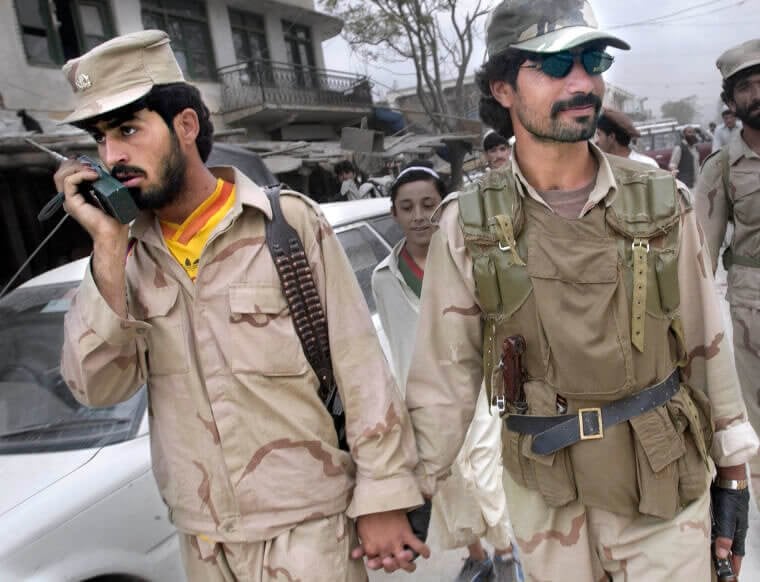
Source: Chris Hondros/Getty Images
This gesture doesn’t mean what it does in other parts of the world. Afghan men can be very affectionate, embracing and kissing the cheeks of their friends in public. This is done purely out of kinship and mutual respect for each other.
South Africa: Fortified Homes
Gated communities in South Africa are practically castles, complete with giant walls, windows overlaid with grills, razor wire, and other extreme fortifications. However, it’s hard to blame house owners for this standoffish position considering that the country has a very high crime rate.

Source: Youtube
A quick push at a gate could trigger an alarm system or a zap from an electric fence. The country’s inefficient criminal justice system and pervasive corruption have led to this situation. However, even if crime rates were low, homeowners would need to keep baboons, hyenas, and lions at bay!
United Kingdom: Tea as a Panacea
Despite the enormous popularity of coffee all over the world, tea remains unaffected as the top hot drink in the UK. Even children are accustomed to drinking tea, and the average Brit drinks at least two cups daily.

Source: Shemazing
The Brits love its calming effect, so they have tea when they want to relax and when they want to get energized. Though this may sound contradictory, tea truly is a cure-all in the UK, and it is consumed both day and night.
Brazil: They're Fixated on Dental Hygiene
Expect Brazilians to excuse themselves after every meal for their regular oral hygiene routine. Not only are they fashion-conscious, but they also like to be very neat throughout the day. It’s not about being especially finicky. Rather, it’s just the way they’re used to doing things.

Source: imgur.com
You can count on them to be invariably presentable, always caring to wash their hands or apply hand sanitizer. They are also known to shower at least twice daily.
United States: Prices Are Exclusive of Taxes
Heading down to the cashier’s counter, a tourist may think they’ve scored an incredible bargain in the US. However, they’re generally in for a sad surprise as price tags are exclusive of taxes and other charges.

Source: me.me
If shopping on a tight budget, a calculator helps with computing the price. However, the taxes vary and could be as low as 2.9% and as high as 7.25%. It would be so much easier on shoppers if they just printed the real price on the tags.
The Netherlands: Can’t Get Enough of Bicycles
Riding a bicycle is the preferred mode of transportation in the Netherlands, especially in the capital of Amsterdam. The roads are more favorable to bikes, and this was deliberately planned as a way of avoiding car dependency.
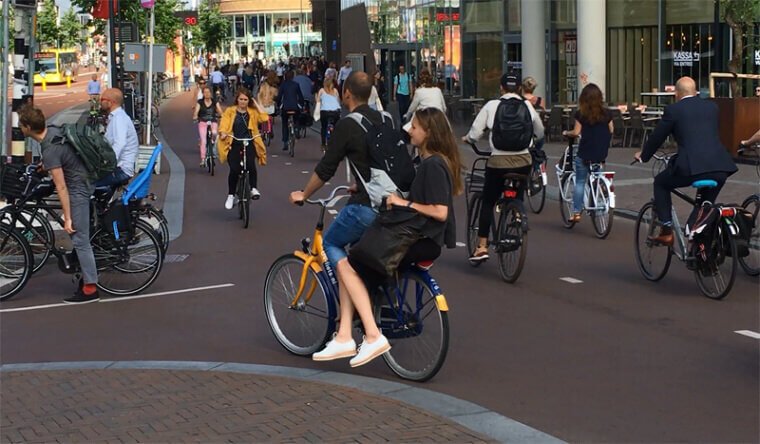
Source: Bicycle Dutch
Most trips around Amsterdam are also short, meaning people of all ages can cycle with ease. Indeed, cycling makes it quicker to get to most locations and as a bonus, it is also a healthier option.
Poland: People Avoid Small Talk
Social gatherings are often decorated with many pleasantries and talk of the weather and other banal topics. Though it can serve a positive purpose, this is just the type of talk that Polish people generally avoid.

Source: Parents.com
Most Poles feel it’s a waste of time to wander through aimless conversation. Thus, when they ask you about your day, don’t take it as a generalized inquiry made out of formality. They really want to know how you are and expect an honest answer.
United States: Having Celebrity Presidents
Citizens from other nations have found it odd to witness an American reality star be voted in as the commander in chief. These two industries aren’t generally mixed, having only the concept of popularity in common. Yet many American actors and public personalities have turned to politics. Trump, Reagan, and Schwarzenegger have been the most successful so far.

Source: Rob Kim/Getty Images
This crossing of boundaries creates a world in which fiction and reality seem muddled, and this is highly unusual to other cultures where the two domains are kept well-defined and separate from each other.
New Zealand: Excluded from World Maps
New Zealand may be a small island nation, but that doesn’t mean it should be left off the map. Despite this, they have been excluded from so many maps, even those displayed on airport murals, that they even made an ad campaign about it.

Source: GOVT.NZ
In most cases, this error comes down to the map’s forced perspective which leads to some sizing issues and New Zealand being pushed off the edge. Still, this isn’t the 16th century – map makers need to get with the times and show some respect to this great nation!
United Kingdom: Waiter Mistakes Draw Applause
The recent rise of Karen memes demonstrates just how unforgiving people can be when employees get something wrong. Rather than remembering that we all make mistakes, some people choose to let loose and take their anger out on the poor staff member.

Source: jagajam.com
In the UK, by contrast, server errors often draw claps and cheers from people around. Though this seems like a form of mockery to people from other countries, the Brits actually mean well. It’s as if to say it’s no big deal – we all make mistakes!
Germany: It Pays to Recycle
To give people more reasons to pick up trash and keep their neighborhoods clean, the German government implemented a system in which people who recycle get paid. These quick, real-time transactions are done through a vending machine.
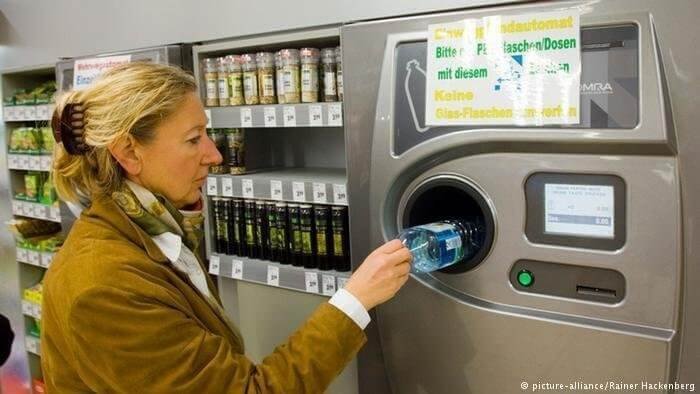
Source: alliance/ Rainer Hackenberg
Germans just put their recycling in the hole and the machine sorts it and determines what you’re owed. The machines can take glass, some plastics, cans, and other items. This is a fun way to earn a little while doing good for Mother Earth. This money-back recycling method has gained popularity in other countries like the US and Norway as well.
Canada: Experiencing Sunless Winter Skies
Waking up early for work in the wintertime in Canada can be a struggle. Outside every home, the roads and the hills are covered in snow. Doors may need shoveling and windscreens de-icing. It is coldest in Eureka, with the average temperature hovering at around -15° Celsius (5° Fahrenheit).
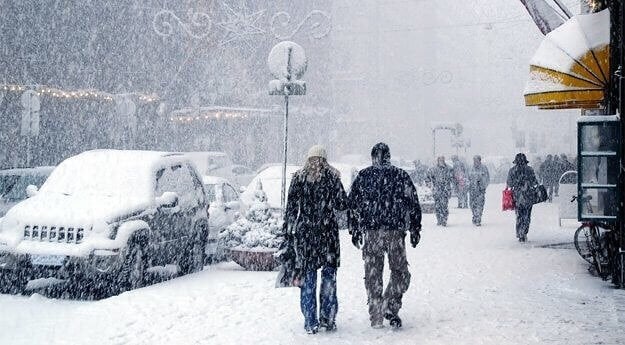
Source: Onedio
Many are forced to stay at home due to the severity of the cold weather. Winter can last for three to six months, and it is advised to take vitamin D during the gloomy, sunless season.
Japan: Inverse Valentine's Day Celebration
Valentine’s Day is a big deal in Japan, especially for young adults. However, the onus of gift-giving is upon the girls who usually give chocolates to their crushes and their close friends.

Source: Nippon.com
Honmei-choco (homemade chocolate) is considered a more meaningful gift than the ready-made varieties found in shops. There are also chocolates called Giri-choco a girl can give to a male friend in whom she has no romantic interest. Boys give gifts in return during White Day on March 14.
United States: Restroom Stalls Aren’t Super Private
Foreign guests in America often find restroom stall designs unusual, with their doors and walls that don’t extend all the way to the ground. A user’s shoes and dropped trousers are visible, and this is disconcerting for many travelers who aren’t used to it.
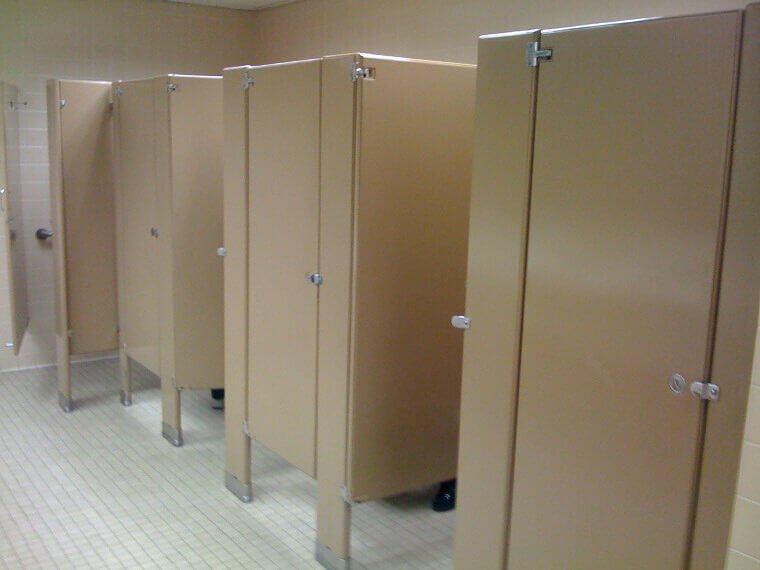
Source: gigasil.com
The lower opening allows people to see if someone is in there without having to knock on the door. It also makes cleaning and maintenance easier. This is a functional design, but we can see why it’s disconcerting at first!
